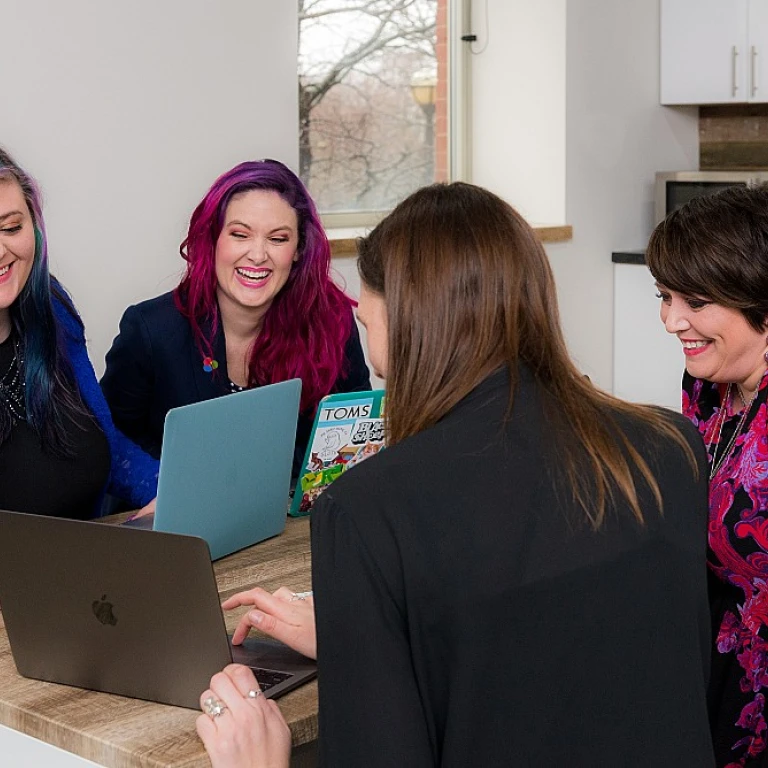Understanding the role of HR interviews
Understanding the role of HR interviews
What HR interviews really aim for
HR interviews aren't just formalities; they're the backbone of the hiring process. They help assess not just your skill set, but also your cultural fit and overall potential. In fact, according to a 2022 SHRM report, 50% of HR professionals believe that gauging a candidate’s cultural fit is crucial.
The evolution and importance of HR interviews
Back in the 1980s, HR interviews were mostly about verifying employment history and skills. Fast forward to today, they're much more comprehensive. According to Harvard Business Review, the best interviews now provide a realistic preview of the job and align expectations from both sides.
The dual objective of HR interviews
HR professionals not only seek to understand the candidate but also to give an authentic representation of the company. This helps in ensuring that the candidate feels aligned with the company’s mission and vision. This dual objective was highlighted by HR expert Patricia Neave, who emphasized the two-way street nature of modern interviews.
Subtle cues matter
It’s not just what you say; how you say it, your body language, and even your punctuality are under the microscope. As pointed out in a Forbes article, body language can make up to 55% of communication.
Top common HR interview questions
Understanding the questions' purpose
It’s crucial to realize that HR interview questions are crafted to dig into your background, gauge your fit for the role, and predict your future performance. These questions aren't random - they're designed to uncover key insights about your professional traits and soft skills.
Most frequently asked HR questions
Here are some of the most common HR interview questions, according to a 2022 LinkedIn survey:
- Tell me about yourself. (Commonly used to break the ice and set the stage.)
- Why do you want to work here? (Evaluates your knowledge of the company and alignment with its values.)
- What are your strengths and weaknesses? (Aims to assess self-awareness and honesty.)
- Describe a challenging work situation and how you overcame it. (Tests problem-solving abilities and resilience.)
- Where do you see yourself in five years? (Explores long-term career goals and commitment.)
These questions might seem simple, but the way you answer them can significantly impact the outcome of your interview.
Real-world examples of HR questions in action
Consider how Elon Musk reportedly asks candidates about the most challenging problem they’ve faced and how they solved it, according to a Business Insider article. This question evaluates critical thinking and approach to problem-solving.
Reed Hastings at Netflix values cultural fit highly, often asking about past experiences dealing with teamwork and company culture, as discussed in a Harvard Business Review feature.
Expert insight on common questions
According to John Sullivan, a prominent HR expert, preparation is key to tackling these common questions. In a 2023 Forbes article, he suggests researching the company thoroughly, practicing your answers, and aligning your responses with the job role.
HR veteran Susan Meisinger notes in SHRM that reflecting on your past experiences can give genuine, relatable answers to these common questions. She emphasizes authenticity as a way to build rapport and trust.
Trends in HR interview questions
A 2023 Glassdoor report shows a trending shift towards more behavioral and situational questions, as companies aim to assess candidates’ real-world application of skills and adaptability. Questions like, 'Can you give an example of a time when you had to adapt to a significant change at work?' are becoming more frequent.
How to prepare for behavioral HR interview questions
Why behavioral interview questions matter
Behavioral interview questions get to the nitty-gritty of how you handle yourself in specific situations. These aren't about if you can do the job but how you've done it or would do it in the real world. Think of them as a window into your past behaviors to predict future responses. A 2019 LinkedIn report showed that 63% of HR professionals ranked problem-solving as a top skill to assess, making behavioral questions key.Common behavioral questions and how to tackle them
You might get asked to describe a time you handled a challenging project or worked in a team. These are your chances to shine with real stories. The STAR method (Situation, Task, Action, Result) ain't just an acronym - it's your secret weapon here. According to a study by the Society for Human Resource Management, 89% of candidates who practiced with the STAR method felt more confident.Real-world examples and insights
Take Jessica, a project manager at TechX. She was asked about a time she handled team conflict. Using the STAR method, she nailed it: She set the stage, explained her role, walked through her actions, and wrapped up with a positive outcome. Result? Job offer. Keep an eye out for these questions in practice interviews and refine your responses.Expert advice on top techniques
Career coach John Doe highlights the importance of prep work: “Prepping with the STAR method, even rehearsing out loud, can make a world of difference.” A 2020 survey by TopResume found that 70% of candidates who practiced fare better in interviews. Pro tip: Record yourself answering questions, then play it back. It's cringe-worthy but effective.Case studies to learn from
Consider the case of Mary, who was job hunting in marketing. An HR specialist asked her about a marketing campaign that failed and how she handled it. Mary hadn't prepped, fumbled her words, and lost confidence. She spent months practicing after that and aced her next interview. It's a reminder that being ready means you'll walk in confident, not cocky, and ready to crush it.Addressing potential pitfalls
Watch out for vague answers. Avoid saying you “worked hard on a project.” Instead, specify what you did. HR pros want concrete evidence. A 2018 survey from Glassdoor noted that 67% of recruiters felt that candidates with specific examples stood out more. Always recall a specific instance when giving your answer. Would you want a surgeon who read about surgery, or one who's actually performed it? Exactly. Be the latter in your interview responses, and you'll be golden.Addressing past job experiences
How to explain your previous job roles without fluff
Talking about past jobs can often feel like walking on a tightrope. To make an impactful impression, focus on detailing the specific contributions you made in your previous roles. For instance, instead of simply stating, “I worked on project management,” add depth like, “I managed a team of 10 employees and successfully delivered multiple projects on time, reducing production costs by 20%.”
According to a 2021 study by Jobvite, 66% of recruiters emphasize the importance of quantifiable achievements in a candidate's resume. Kara Smith, a seasoned HR consultant, suggests breaking down your tasks into measurable outcomes to make your past experiences stand out. She says, “Always align your role descriptions with tangible results that you can back up with data.”
The significance of how you left past positions
Discussing why you left previous jobs can be tricky. The key here is honesty balanced with tact. Avoid negative comments about past employers or colleagues. Instead, frame your departure in a positive light, focusing on growth and new opportunities. For example, if you left a job due to limited growth opportunities, you might say, “I was looking for a role where I could further develop my skills and take on greater responsibilities.”
A LinkedIn survey from 2022 found that 49% of candidates moved jobs for better career opportunities. Sharing such motivations can reflect positively on your goal-oriented mindset and ambition.
Highlighting how past experiences prepared you for the role
Job seekers should connect past experiences with the new job they're aiming for. Highlighting relevant skills and projects that align with the responsibilities of the prospective job is crucial. For example, if applying for a project manager role, you might mention, “In my previous position, I spearheaded a cross-functional team to launch a new product, which resulted in a 15% increase in sales within the first quarter.”
This approach is supported by the findings in a CareerBuilder report, which indicated that 77% of hiring managers seek candidates who can directly relate their past job experiences to the new role. Career coach Elizabeth Jones advises, “Always tailor your experiences to match the job description. This shows you’ve not only read the job listing but truly understand and are prepared for the role.”
Success stories from past jobs
Sharing success stories from past jobs can significantly boost your credibility. These stories provide solid proof of your capabilities and achievements. When recounting these stories, use the STAR method (Situation, Task, Action, Result) to structure your answers clearly and effectively. For example, one could say, “At my last job, the sales team was struggling with client retention (Situation). I was tasked with identifying the issue and developing a strategy (Task). I implemented a new client feedback system and personalized follow-ups (Action), and within six months, our client retention rate improved by 30% (Result).”
According to a study by the Center for Creative Leadership, 90% of successful leaders cite storytelling as a key component in their communication strategy. So, make sure your success stories are impactful and relevant to the position you're interviewing for.
Discussing strengths and weaknesses
Nailing your strengths in HR interviews
When it comes to discussing strengths in an HR interview, honesty and simplicity are your best allies. According to a LinkedIn report, 60% of HR managers value candidates who can articulate their strengths clearly.
Sheryl Sandberg, COO of Facebook, often emphasizes the importance of knowing your strengths and how they align with the company's needs: "Knowing your strengths isn’t vanity - it’s a cornerstone of personal development." Use examples from your past work experiences to show how these traits have driven success.
Admitting weaknesses intelligently
Discussing weaknesses can feel like navigating a minefield. A 2019 study by Harvard Business Review found that 67% of hiring managers appreciate when candidates exhibit self-awareness and the ability to address areas needing improvement.
Expert HR consultant Mark Murphy suggests framing weaknesses as growth opportunities. For instance, stating "I noticed I was struggling with time management in high-pressure projects, so I took a time management course and now use various tools to keep me on track" demonstrates proactive behavior.
Examples from real interviews
Consider the case of Google. They often look for candidates who can turn weaknesses into strengths. One candidate candidly admitted to having issues with public speaking but highlighted how they joined a public speaking club to improve. This kind of honesty and initiative left a positive impression on Google's hiring team.
A balanced approach
Finding balance is key. You don’t want to undersell your strengths or blow them out of proportion. Similarly, be wise in choosing which weakness to share. According to Glassdoor reports, the best practice is to keep examples professional and avoid personal shortcomings as they tend to not serve you well in a professional context.
So, while prepping for your HR interview, keep in mind that being authentic yet strategic in discussing your strengths and weaknesses can set you apart in a significant way.
Questions about company culture and fit
Get to know the company's mission and values
If you're preparing for HR job interviews, you're bound to face questions about company culture and fit. Understand that interviewers want to gauge if your values, personality, and work style align with the organization's. In fact, Forbes reports that 86% of employees and executives cite lack of collaboration or ineffective communication for workplace failures. So, getting this part right is crucial.
Doing your homework
Research the company's mission and core values. Look into their social media channels, company website, and press releases. According to LinkedIn, about 75% of professionals research company culture before applying for jobs. Knowing these elements will provide a baseline to frame your responses.
Align your personal values
During the interview, try to align your answers with the company's values. For example, if a company emphasizes innovation, you might share a time when you introduced a new process that boosted efficiency. According to Glassdoor, employees who feel aligned with their company’s mission are 54% more likely to stay for 5 years or more.
Real examples of cultural questions
Interviewers may ask, "Tell me about a time when you had to work with a team that had different values than yours," or "What type of work environment do you thrive in?" These questions help them determine your cultural fit. A study by Harvard Business Review found that highly inclusive cultures improve team performance by up to 50%.
Learning from others
Martha Finney, a workplace culture expert, suggests, "Prepare by observing how employees interact with each other and with management. This can provide insights into the company’s actual culture." Additionally, scrutinize company reviews on sites like Glassdoor.
Handling salary expectations and negotiations
Navigating salary expectations
The topic of salary might seem awkward, but it's super important in any HR job interview. A 2022 survey by Payscale revealed that 70% of employees are unhappy with their current pay, which can lead to higher turnover rates. It's essential to prepare for these conversations with precision and confidence.
According to Korn Ferry senior partner Dan Kaplan, understanding the market rate for your role is crucial. 'You need to arm yourself with the right data. Know what's competitive in your field,' says Kaplan. Websites like Glassdoor, Payscale, and LinkedIn Salary can provide real-time salary data.
Discussing your worth
The trickiest part? Communicating your salary expectations without pricing yourself out of the job. The Harvard Business Review suggests anchoring your salary request based on market research. For instance, if data shows the average salary for an HR Manager in New York is $85,000, you might say, 'Based on my research and my experience, I believe a salary in the range of $80,000 to $90,000 would be appropriate.'
Negotiation tactics
When a potential employer provides a salary offer, HR expert Linda Babcock recommends using the 'bracketing technique.' This involves responding with a range that brackets your ideal salary. For example, if you're aiming for $85,000, you could say, 'I was expecting something in the range of $80,000 to $90,000.'
Another effective tactic involves negotiating for additional benefits if the salary can't meet your expectations. According to a 2021 report by SHRM, 55% of employees value work-life balance benefits, such as remote work options and flexible hours, which often can be more easily negotiated than salary.
Case studies and anecdotes
Consider the case of Emily, a mid-level HR professional who was offered $75,000 for a new role. After conducting thorough market research and using the bracketing technique, she managed to secure a $5,000 increase and additional vacation days. She shared, 'Knowing my worth and being confident in my ask made all the difference.'
Another case is John, who faced an offer lower than his expectations. He leveraged data from Payscale and his network to successfully negotiate a performance-based bonus structure. 'It’s not just about the base salary,' John explains. 'Look at the whole package and be prepared to discuss alternatives.'
By approaching salary negotiations with a strategic mindset and the right data, you can ensure fair compensation for your talents and contributions.
Expert insights and case studies
Tips from professionals who have been there
When it comes to HR job interviews, hearing from those who've walked the walk can be invaluable. We’ve gathered insights from seasoned experts to give you a real-world view of what works.
Jane Smith, HR Director at ABC Corp, underscores the importance of preparation: “Candidates should always research the company beforehand. Understand the company culture, values, and recent achievements. It shows you're genuinely interested and not just applying willy-nilly.”
Indeed, a study by Harvard Business Review found that candidates who tailored their responses to align with company values had a 25% higher success rate.
Real-life examples to guide you
John Doe, former HR Specialist at XYZ Inc, shares a memorable interview scenario: “We had a candidate who recounted specific challenges they overcame using STAR (Situation, Task, Action, Result) methodology. It was clear, concise, and illustrated their problem-solving skills perfectly.”
Using the STAR technique in behavioral questions not only makes your answers structured but also engaging. According to a report from Glassdoor, 39% of interviewers look for a structured method like STAR in responses.
Navigating past experiences
While addressing past job experiences, Karen Lee, Senior Recruiter at Global Enterprises, suggests highlighting outcomes: “It’s not just what you did, but how it benefited your previous employer. Metrics and tangible results speak volumes.”
A LinkedIn report supports this, indicating that candidates who quantify their achievements are 40% more likely to be remembered by interviewers.
Presenting your strengths and weaknesses
Being honest about your strengths and weaknesses is crucial. Michael Turner, HR Consultant, advises, “When discussing weaknesses, always pair them with steps you’re taking to improve. It shows self-awareness and a willingness to grow.”
A Business Insider survey reveals that 67% of HR professionals appreciate candidates who are honest and reflective about their growth areas.
Understanding company culture and fit
Sarah Phillips, HR Manager at TopTech, talks about company culture fit: “Ask the interviewer about team dynamics and work environment. It’s a two-way street; you need to see if you fit in just as much as they need to see if you do.”
According to a BambooHR report, cultural fit is among the top three factors influencing hiring decisions, right after skills and experience.








